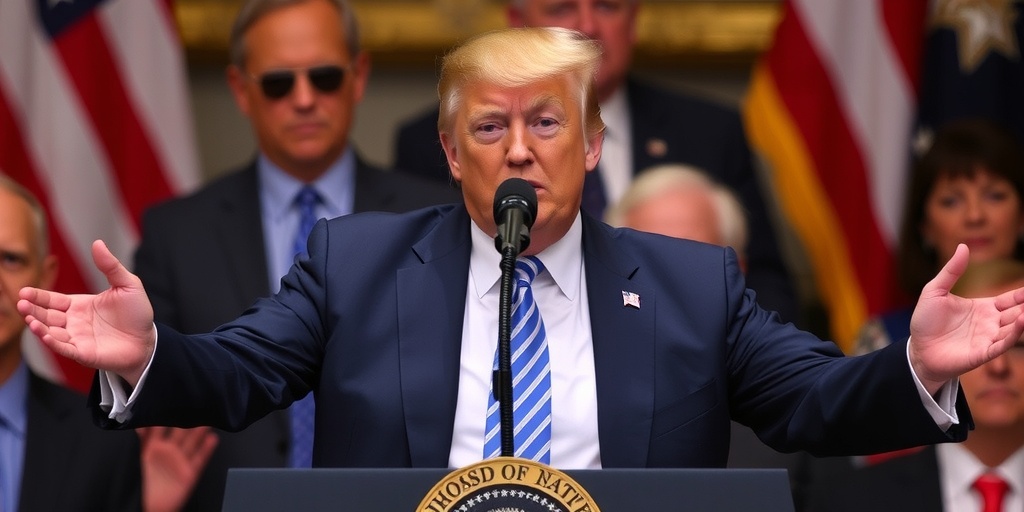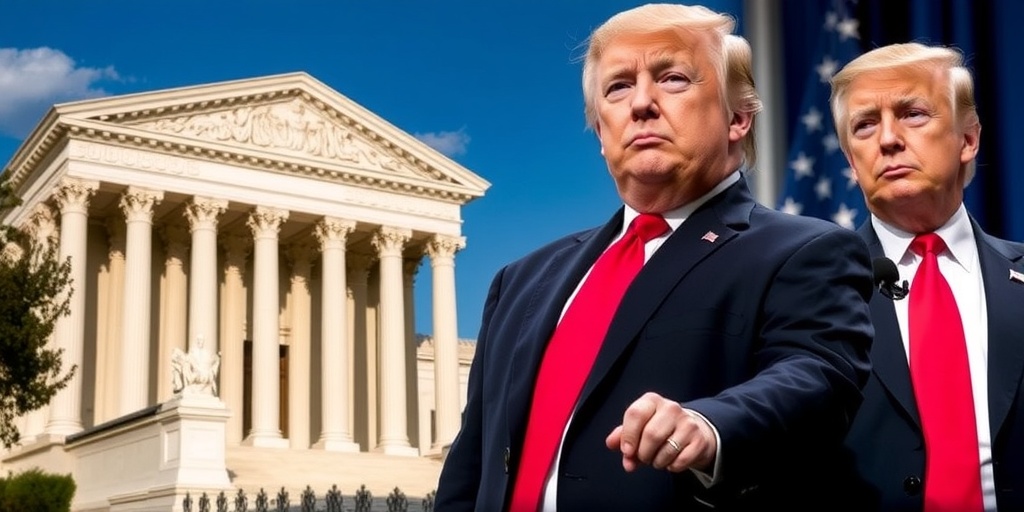Now Reading: Law Firm Sues Over Trump Executive Order
-
01
Law Firm Sues Over Trump Executive Order
Law Firm Sues Over Trump Executive Order

Perkins Coie Sues Trump Administration Over Executive Order Impacting Legal Representation
In a significant legal battle, the law firm Perkins Coie has filed a lawsuit against the Trump administration in response to an executive order signed by President Trump that hampers the firm’s ability to effectively represent its clients. The suit was filed in federal court in Washington, D.C., and is being managed by the prestigious law firm Williams & Connolly, known for its expertise in litigating against the federal government.
The executive order, signed by President Trump last Thursday, has raised significant concerns across the legal community. The order prohibits the attorneys of Perkins Coie from entering federal buildings and actively discourages federal officials from communicating with the firm’s lawyers. These restrictions pose an insurmountable obstacle for Perkins Coie in its advocacy efforts on behalf of its clients, which range from major corporations to public interest groups.
Perkins Coie argues in its lawsuit that the executive order is unconstitutional, asserting that the president lacks the authority to impose such sweeping restrictions. The firm contends that the order violates core principles embedded in the Constitution, particularly the separation of powers, as well as breaches the First and Fifth Amendments. The lawsuit states that this executive action represents a significant threat not only to Perkins Coie but to the integrity of the legal system in the United States.
In the complaint, Perkins Coie emphasizes that the implications of this executive order extend far beyond a singular law firm. It frames the order as an “affront to the Constitution and our adversarial system of justice.” By trying to intimidate those who represent viewpoints seen as contrary to the presidential administration, the firm argues, it undermines the very foundation of the legal profession and the right of individuals to have competent legal representation.
The lawsuit expresses concern that the chilling effect of the executive order could lead other law firms to shy away from representing clients associated with Perkins Coie for fear of potential retribution from the Trump administration. This concern is particularly heightened given the political nature of the current climate, where legal representation is frequently scrutinized through a partisan lens.
“Perkins Coie cannot allow its clients to be bullied,” the lawsuit reads, underlining the firm’s commitment to providing robust legal support regardless of the political landscape. The firm indicates that its work in political law constitutes only a minor segment of its overall business; its primary focus remains on representing large corporate clients interacting with federal agencies across various sectors.
The lawsuit claims that the executive order has already caused harm, resulting in “significant” financial losses and threatening relationships with clients. Perkins Coie states that there have been instances where government employees indicated that attorneys from the firm should not or could not participate in scheduled meetings. Furthermore, the firm has been informed that several clients are reconsidering their legal engagements with Perkins Coie, with some even terminating their contracts altogether.
This contentious case has been assigned to Judge Beryl Howell of the Federal District Court for the District of Columbia. Judge Howell has a seasoned history of adjudicating high-profile cases that involve issues related to the Trump administration. She has overseen significant investigations, including the inquiry into the connections between Trump’s 2016 presidential campaign and Russia, as well as investigations related to the special counsel’s findings concerning Trump. Her previous rulings have often favored prosecutors in complex legal matters involving the former president.
More recently, Judge Howell has ruled against Trump in matters concerning the authority to dismiss members of the National Labor Relations Board, unequivocally criticizing his interpretation of executive power. In her judgment, she stated, “A president who touts an image of himself as a ‘king’ or a ‘dictator’ fundamentally misapprehends the role,” alluding to Trump’s self-styled portrayal of his leadership.
The Perkins Coie lawsuit underscores a critical moment in the intersection of government authority and the legal system. The outcome may set a precedent for how executive power is exercised and challenged in the courts, particularly as it pertains to the representation of clients in the complex political landscape of contemporary America. The case is likely to garner substantial attention as it unfolds, reflecting the ongoing tensions between the judiciary and the executive branch in a polarized political environment.
As the legal proceedings progress, the implications of this case may resonate deeply within the legal community, influencing how legal professionals navigate the challenges of representing clients in an era where political considerations increasingly intrude upon the functions of justice.
Stay Informed With the Latest & Most Important News
Previous Post
Next Post
-
 01New technology breakthrough has everyone talking right now
01New technology breakthrough has everyone talking right now -
 02Unbelievable life hack everyone needs to try today
02Unbelievable life hack everyone needs to try today -
 03Fascinating discovery found buried deep beneath the ocean
03Fascinating discovery found buried deep beneath the ocean -
 04Man invents genius device that solves everyday problems
04Man invents genius device that solves everyday problems -
 05Shocking discovery that changes what we know forever
05Shocking discovery that changes what we know forever -
 06Internet goes wild over celebrity’s unexpected fashion choice
06Internet goes wild over celebrity’s unexpected fashion choice -
 07Rare animal sighting stuns scientists and wildlife lovers
07Rare animal sighting stuns scientists and wildlife lovers





















